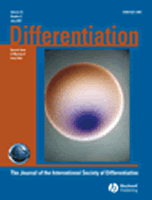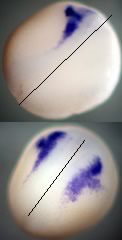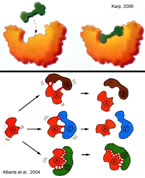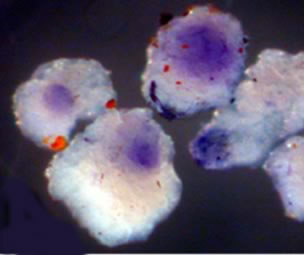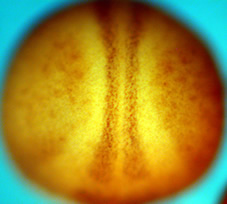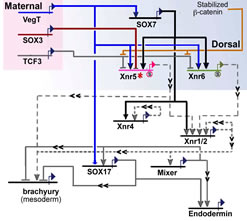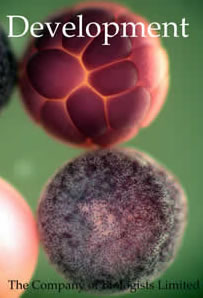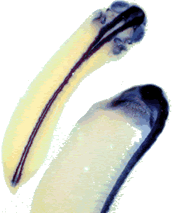83. Klymkowsky M.W. 2009. Make
room for computing. Science. 2009 Oct 9;326(5950):227. (letter)
82. Klymkowsky, M.W. 2009. A guide to the
productive poking, prodding and injection of cells, a review of 'Microinjection:
Methods and Applications'"Microinjection: Methods and Applications" by
David Carroll, ed. Development 136:4070-4072.
81. Zhang,
C. & M.W.
Klymkowsky. 2009. Unexpected
functional redundancy between Twist and Slug (Snail2)
and their feedback regulation of NF-kB via Nodal and
Cerberus.
Developmental Biology, 331:340-9.
80. Klymkowsky,
M.W. & P. Savagner. 2009. Epithelial-mesenchymal
transition (EMT): a cancer researcher's conceptual friend
and foe. American Journal of Pathology. 174:1588-93.
79. Klymkowsky,
M.K. & E.M.
Furtak. 2009. How
the incoherent state of science and mathematics education
undermines biological (and scientific) literacy. Colorado
Higher Education News.
78. Schlosser,G., T. Awtry,
S.A. Brugmann, E.D. Jensen, K. Neilson, G. Ruan,
A. Stammler, D. Völker, B. Yan, C. Zhang, M.W.
Klymkowsky,
& Sally A. Moody. 2008. Eya1
and Six1 promote neurogenesis in the cranial placodes
in a SoxB1-dependent fashion. Devel.
Biol. 320:199-214.
77. Garvin-Doxas,
K. & M.W.
Klymkowsky. 2008. Understanding
Randomness and its impact on Student Learning: Lessons from
the Biology Concept Inventory (BCI). CBE
Life Sci Educ 7: 227-233 (journal link).
76. Cortez-Rossi,
C., L. Hernandez-Lagunas, C. Zhang, I.F. Choi, L. Kwok, M.W.
Klymkowsky &
K.B. Artinger. 2008. Rohon-Beard
sensory neurons are induced by BMP4 expressing non-neuronal ectoderm
in Xenopus laevis, Devel.
Biol., 314:351-61.
75. Klymkowsky,
M.W. & K. Garvin-Doxas.
2008. Recognizing
Student Misconceptions through Ed's Tool and the Biology
Concept Inventory. PLoS
Biology, 6: e3. |


